
‘Here, Everyone Can Be Heard and Receive Feedback’
The Ronald F. Inglehart Laboratory for Comparative Social Research (LCSR) has been holding academic seminars for 15 years, bringing together scholars from various countries and offering early-career researchers a platform to present their work. Anna Almakaeva, Head of the Laboratory, spoke to the HSE News Service about how exchanging ideas contributes to academic work, what topics are discussed at the seminars, and the laboratory’s plans for the upcoming academic season.
.png)
Anna Andreenkova Delivered a Report at the Eurasian Monitor Seminar
Her presentation opened the "International Social Studies" seminar.

Congratulations to Nikita Zubarev on His Successful Dissertation Defence for the Degree of Candidate of Political Sciences
Research Assistant at the Laboratory for Comparative Social Research defended his candidate dissertation on the topic “Affective Sources of Trust in the President of Russia”.
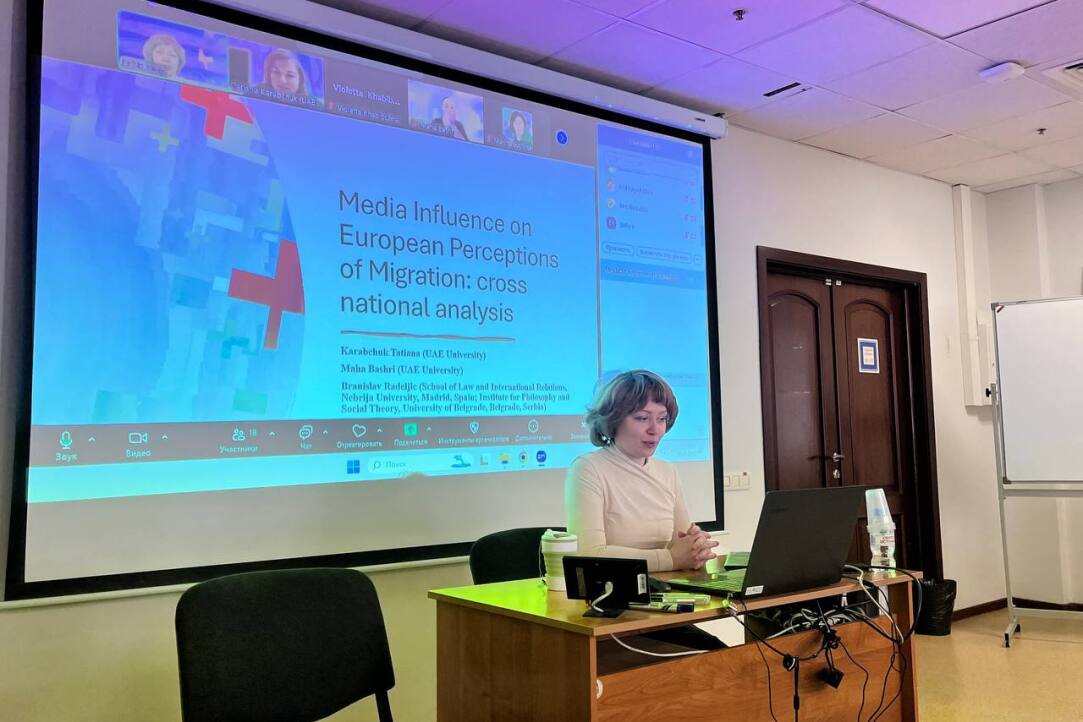
The 14th LCSR International Workshop: Day 1
On April 14, the 14th LCSR International Workshop started offline in Moscow and online.
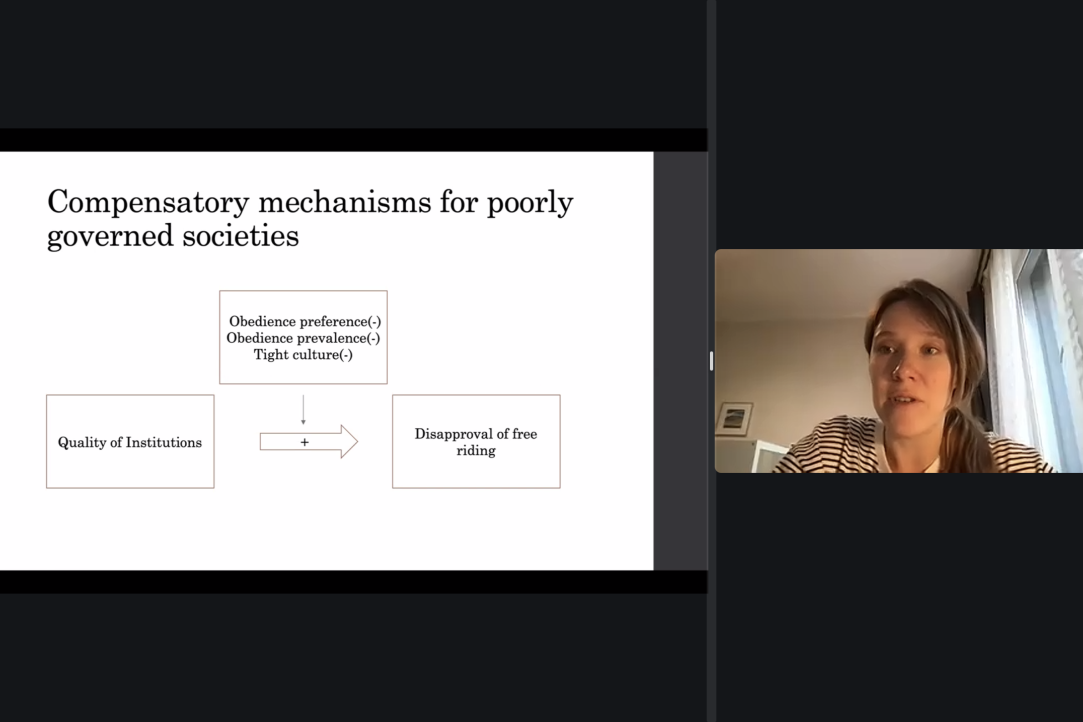
The First Regular LCSR Seminar of Autumn Semester–2024 Was Held
Ekaterina Nastina presented the report ‘Justifiability of Free Riding and Quality of Institutions: The Moderating Role of Personal Values and Culture’.
Congratulations to Dmitry Arkadov on Successful Dissertation Defense for the Degree of Candidate of Political Sciences
Research assistant at the Laboratory for Comparative Social Research defended his candidate dissertation on the topic “The Formation and Function of Mechanisms of Electronic Participation in Russia's Regions”.
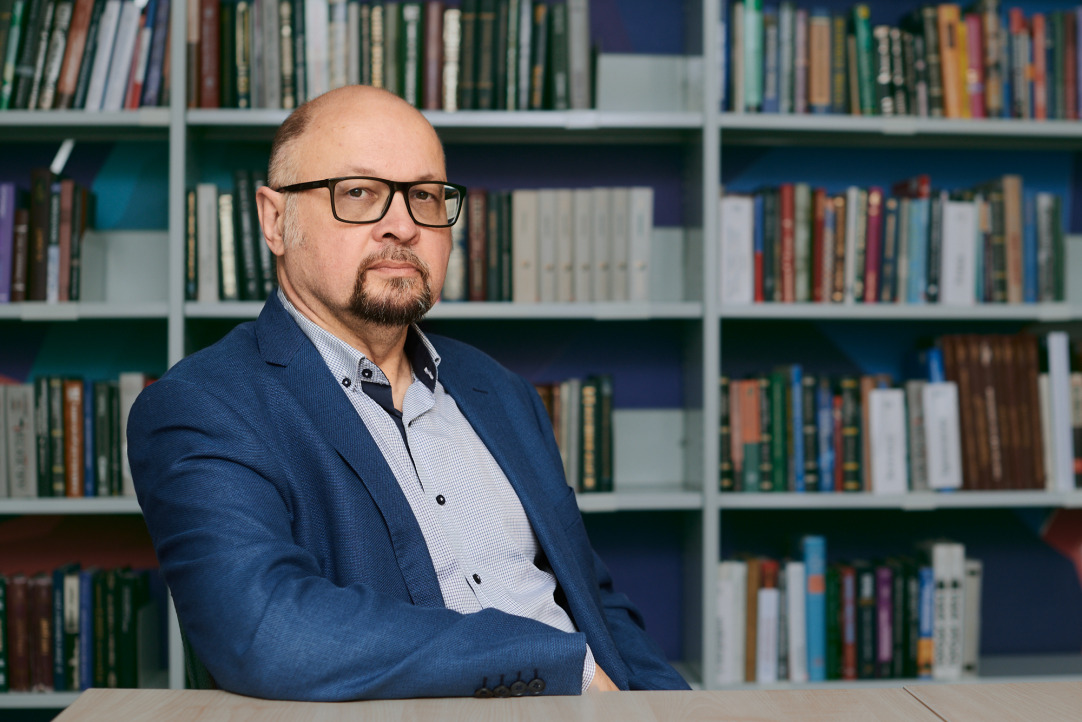
Eduard Ponarin Received a Letter of Appreciation from the Rector of HSE University
Eduard Ponarin received a letter of appreciation for many years of work and dedication to his profession.
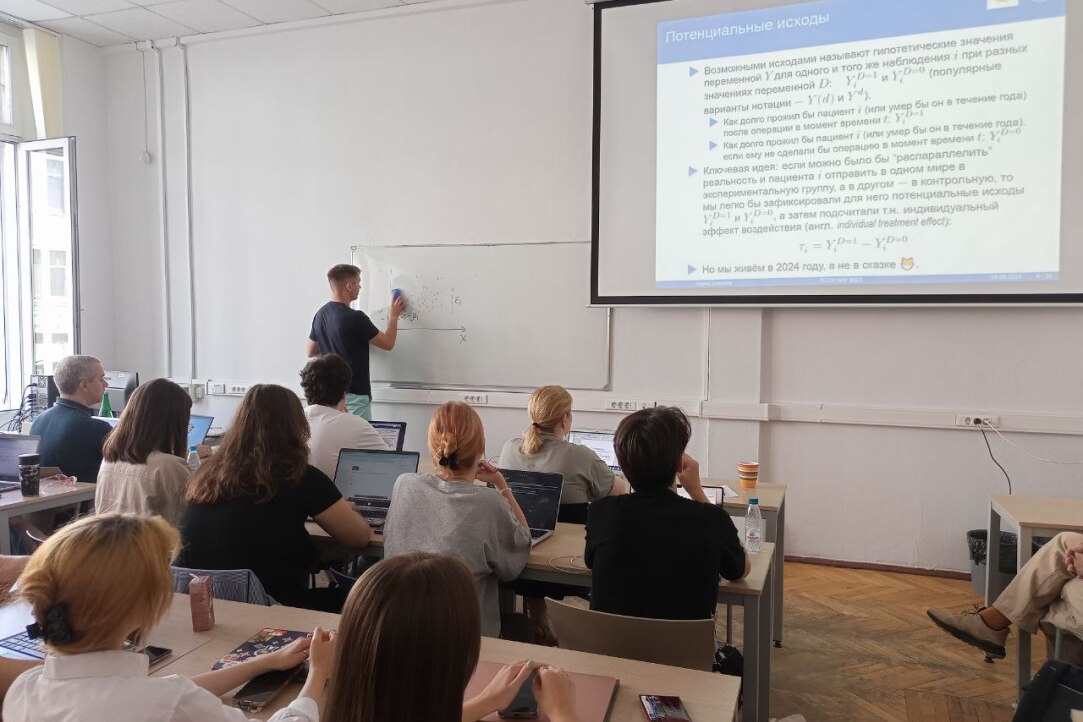
Advanced Training Courses Were Held at the R. F. Inglehart Laboratory for Comparative Social Research
This year's course topic is "Methods of Statistical Causal Inference".
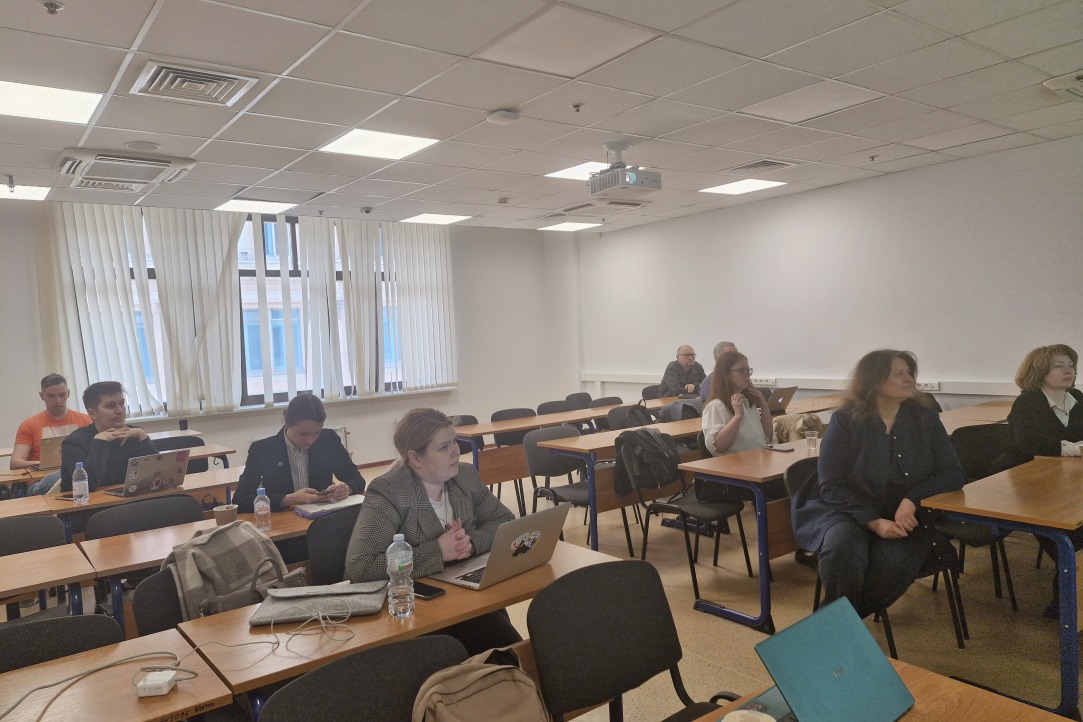
Subjective Well-being and Regional Quality of Life in Russia
On the final day of the 13th LCSR International Workshop, Ekaterina Nastina presented a study "Subjective Well-being and Regional Quality of Life in Russia" co-authored with Anna Almakaeva.

Values Change in Russia, Mexico and Germany
At the 13th LCSR International Workshop participants presented their studies on the dynamics of values in Mexico, Germany and Russia.
In this paper, we use data from a longitudinal online study to examine how characteristics of prosocial behaviors influence the level of positive affect they produce. Although much work has found that prosocial behaviors benefit those who enact them, the question remains if and how these effects vary based on characteristics of those acts. Using models that adjust for co-occurrence among act characteristics, we find that positive affect produced by prosocial acts is greater for those acts that: involve giving money or items, are seen as unusually kind, elicit positive feedback, and are varied over time. However, we find that the actor’s relationship to the beneficiary, reaping benefits from prosocial acts, and the number of successive acts made no difference in terms of resultant positive affect. We conclude with a discussion of potential mechanisms explaining these differing effects and explore practical implications for kindness interventions.
This paper inspects the changes in basic human values (“Schwartz values”) during the coronavirus pandemic, as well as analyzes the associations between values and negative pandemic experiences. Using the 4 waves of the panel online survey ‘Values in Crisis’ conducted in 2020–2022 in Russia, the study highlights the short-term nature of value changes and general stability of orientations. The findings demonstrate a small decrease in conformity, stimulation and self-enhancement at the beginning of the pandemic, along with a decline in self-transcendence and self-enhancement and an increase in hedonism by the end of the period. Additionally, the results illustrate fluctuations in conformity values throughout the pandemic. Multilevel regression models indicate positive associations of health-related concerns with conservation, and the opposite relationship – with openness to change. Negative economic experiences, both first-hand and prospective, demonstrate a reverse association with tradition. Further analysis suggests that the impact of health-related experiences decreases over time, whereas economic-related issues become more important. The study contributes to understanding value dynamics during crises, highlighting the differential and evolving impact of pandemic-related experiences on human values.
An important question in cogntive and evolutionary psychology is how the human mind anticipates the future and copes with stress and risk of disease. The parasite-stress model suggests that many patterns of human behavior and thought are adaptations to varying levels of exposure to parasites and pathogens. A growing body of health psychology research shows a link between positive future thinking and resiliency to various forms of disease. In this study, we investigate the link between historical pathogen prevalence in countries and individuals' perception of the future of humanity. We surveyed 18,981 participants across 68 nations, examining their beliefs about how well humanity will be doing 1000 years from now compared to the present. We found that individuals residing in regions with higher historical disease risk tend to have more positive views about the future of humanity than individuals residing in areas with lower historical disease risk. The difference could not be attributed to several other stress-inducing factors, such as climate stress, population density or objective or subjective socioeconomic indicators. This research contributes to a growing body of evidence demonstrating how disease risk shapes human cognition and encourages future exploration of the evolution of temporal forecasting and consciousness.
When and how does an environmental protest cycle affect election outcomes under electoral authoritarianism? Drawing on the case of the Bashkortostan republic, a Russian ethnic region, I leverage the spatial proximity to the protest site to identify its effects on parliamentary elections. The environmental protest cycle peaked in Bashkortostan around the regional government’s decisions to extract minerals from shikhans – mountains composed of limestone. Employing a difference-in-differences (DiD) design, I show that precincts exposed to the environmental protest cycle experienced a significant drop in United Russia vote share, while voting for systemic opposition increased in the affected precincts. To explain the dynamics, I propose treating non-political protests, such as environmental ones, as an information revelation mechanism. The mechanism identified through a causal mediation analysis indicates that the environmental protest cycle conveys information on regional malperformance to voters. Their updated preferences, in turn, heavily undermine the electoral mobilizing capacity of local elites.
Previous research indicates that the significance of love varies considerably across cultures. In the present study, we introduce an often-overlooked cultural factor – religiosity – to explore its influence on the relationship between being in love and five dimensions of subjective well-being. We conducted two cross-cultural studies with 31,608 participants from 117 samples across 83 societies. Our findings reveal that, in more religious cultures, being in love is a weaker predictor of well-being compared to more secular cultures in four out of six models. These findings indicate that national context influences the relative importance of various emotions and experiences for well-being, underscoring the need to account for cultural context in research on love.
This study investigates the factors contributing to cross-cultural variation in the disapproval of free-riding behaviors such as tax evasion, fare dodging, and benefits fraud. While some cross-cultural researchers contend that attitudes toward these behaviors exhibit minimal variance due to a universal value of fairness, others adopting an institutional perspective argue that significant differences can be explained by factors like government effectiveness and the rule of law. We aim to replicate the pivotal role of institutional quality and propose that its impact is further moderated by cultural dimensions of individualism-collectivism and tightness-looseness. Utilizing a diverse dataset from the World Values Survey and European Values Study, encompassing 92 countries and over 158,000 individuals, we employ multilevel modeling to explore global and contextual patterns. Our findings reveal that while institutional quality reduces tolerance for free riding globally, its effect is not uniform and varies significantly based on cultural context. Specifically, whereas attitudes to free riding in individualistic and loose cultures depend heavily on just and effective governance, in collectivist and tight societies this reliance diminishes as group-centric values and low tolerance toward deviance help sustain compliant attitudes even when institutional quality is low.
Using an online survey from June 2020 (N = 1,527), we explored correlates of COVID-19 skepticism in Russia, where it was widespread: 38% of respondents supported the statement that the pandemic is a hoax and lockdown measures are an overreaction. Compared to non-skeptics, skeptics were more likely to be middle-aged males with low education. Covid experience reduced skepticism, while economic hardship increased it. Skeptics scored lower on Schwartz’s conservation values and higher on openness to change. They distrusted the traditional media, government, and healthcare, were more critical of the government’s handling of the coronavirus crisis, and held lower national pride.
Even in the most egalitarian societies, hierarchies of power and status shape social life. However, power and received status are not synonymous—individuals in positions of power may or may not be accorded the respect corresponding to their role. Using a cooperatively collected dataset from 18,096 participants across 70 cultures, we investigate, through a survey-based correlational design, when perceived position-based power (operationalized as influence and control) of various powerholders is associated with their elevated social status (operationalized as perceived respect and instrumental social value). We document that the positive link between power and status characterizes most cultural regions, except for WEIRD (Western, Educated, Industrialized, Rich, Democratic) and Post-Soviet regions. The strength of this association depends on individual and cultural factors. First, the perceived other-orientation of powerholders amplifies the positive link between perceived power and status. The perceived self-orientation of powerholders weakens this relationship. Second, among cultures characterized by low Self-Expression versus Harmony (e.g., South Korea, Taiwan), high Embeddedness (e.g., Senegal), and high Cultural Tightness (e.g., Malaysia), the association between power and status tends to be particularly strong. The results underline the importance of both individual perceptions and societal values in how position-based power relates to social status.
We recommend you to use the following HSE affiliation:
In Russian:
Лаборатория сравнительных социальных исследований, Национальный исследовательский университет «Высшая школа экономики».
In English:
Laboratory for Comparative Social Research, National Research University Higher School of Economics, Russian Federation.
The source of the research financing is strictly required:
In Russian:
Статья/монография/глава подготовлена в ходе/в результате проведения исследования/работы в рамках Программы фундаментальных исследований Национального исследовательского университета «Высшая школа экономики» (НИУ ВШЭ).
In English:
The article/book chapter/book was prepared within the framework of the HSE University Basic Research Program.


